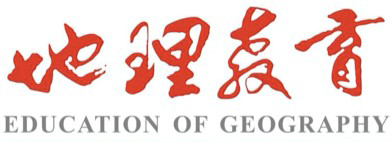


Brief Introduction to the School of Geography and Tourism, Chongqing Normal University
Founded in 1954, the School of Geography and Tourism of Chongqing Normal University, mainly fostered undergraduates and junior college students of Geographical Sciences. The major of Tourism Management was developed based on Geographical Sciences in 1995 and the College of Chongqing Tourism was approved by the Chongqing Municipal Education Commission in 1998. In 2004, it was divided into School of Geographical Sciences and School of Tourism, which were merged into our current school in 2010. The school was granted for the establishment of College of Modern Intelligent Tourism Industry in 2021, as a demonstrative Modern Industrial College for ordinary undergraduate universities in Chongqing.
The school has six undergraduate majors of Geographical Science, Geographic Information Science, Tourism Management (higher vocational education included), Hospitality Management, Urban and Rural Planning, as well as Aviation Service Art and Management, with more than 2000 full-time undergraduates currently registered. The Geographical Science and Tourism Management are national first-class undergraduate construction majors. The Geographical Science is a municipal distinctive major in Chongqing and the Tourism Management is a national one.
The school has been identified as an Application Transformation College and granted for the Distinctive Major Cluster of Applied Geographical Science and Tourism Management in Chongqing. The school is entitled to authorize academic master's degrees in Geography and Tourism Management, and professional master's degrees in Tourism Management, Geography Teaching, Vocational and Technical Education for Tourism Service, as well as Resources and Environment, with over 620 graduate students.
The school has several municipal laboratories and centers, including two key laboratories, one university-affiliated key laboratory, one 2011 Collaborative Innovation Center, one field scientific observation station, and one experimental teaching demonstration center, owns national research platforms such as the Southwest Mountain Branch of the National Earth System Science Data Center, the Yangtze River Tourism Research Base of the Chinese Academy of Tourism, and possesses four municipal research teams including one Innovation and Entrepreneurship Demonstration Team of Chongqing Talents, two university innovation teams, and one collaborative innovation team in philosophy and social sciences. Additionally, it hosts the national outstanding journal Geography Education.
The school has 111 staff, with 91 full-time teachers including 26 professors, 35 associate professors, and 67 with doctoral degrees. There are two national talents (e.g., the National New Century Talents Project) and 22 provincial talents (e.g., Chongqing Talents).
The school has always attached importance to discipline construction. The Geography and Tourism Management are key disciplines during the "14th Five Years Plan" period in Chongqing. The school has established the discipline cluster of Smart Eco-tourism Artificial Intelligence+ in Chongqing. The school has long been focused on scientific research and social services of resource, environment and ecological construction, tourism development and management, urban and rural residential environment and land use in the Three Gorges Reservoir Area and in Chongqing, and has obtained significant academic achievements and social benefits.
Since 2014, the school has undertaken 51 national scientific research projects (e.g., the National Natural Science Foundation and the National Social Science Foundation) and 229 provincial and ministerial projects (e.g., the Chongqing Outstanding Youth Fund and the Humanities and Social Sciences Program of the Ministry of Education). It has 22 scientific research awards at the national, provincial and ministerial levels, and 26 invention and utility model patents. The staff of the school have published 29 monographs and over 1180 scientific papers, 280 of which are in SCI/SSCI-indexed journals.
The school covers 12,000 square meters for experimental teaching and scientific research. It has more than 200 scientific research equipments, including three-dimensional laser scanners, inductively coupled plasma emission spectrometers, flow injection analyzers, gas chromatography, atomic fluorescence spectrometers, atomic absorption spectrometers, ion chromatographs, spectral radiometers, TOC analyzers, fully automatic Kjeldahl nitrogen determiners, astrographs, etc.
The school adheres to the spirit of "embracing diverse talents, aspiring to lofty ideals, diligent pursuit of excellence, and pragmatic innovation". It focuses on talents fostering, takes the disciplinary construction as leading task, enforces the importance of scientific research, and directs in social serves. The school is striving to become a first-class teaching and research institute in the western China.

 《地理教育》期刊
期刊栏目: 本期关注 专栏 课堂教学 复习备考 教学研究 研学旅行 高师教改
《地理教育》期刊
期刊栏目: 本期关注 专栏 课堂教学 复习备考 教学研究 研学旅行 高师教改
